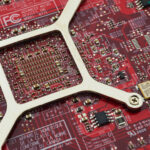Professional Oil Tank Service: Sanitary & Efficient
Ever thought about the impact of ignoring grease trap cleaning on your kitchen? The consequences could be far-reaching, affecting not only compliance but also the heart of your restaurant’s operations. Professional grease tank service is crucial for a clean, effective commercial kitchen. It ensures grease interceptors function properly, decreasing the probability of expensive emergency repairs and plumbing issues. This article delves into the significance of grease tank service and its part in enhancing culinary performance.
Comprehending the Significance of Grease Reservoir Service
A grease interceptor’s upkeep is crucial for a commercial kitchen’s performance. These devices intercept fats, oils, and greases (FOG) generated during meal cooking and culinary processes. Without proper service, these materials can cause to severe plumbing and ecological issues.
Role of Grease Traps in Industrial Kitchens
In a busy kitchen, the amount of fats, oils, and grease is considerable. Grease traps serve as the main barrier, stopping these substances from entering the drainage system. Proper food service grease trap maintenance ensures they trap FOG effectively, reducing the chance of blocked pipes. Regular inspections and cleanings are essential to ensure their optimal performance.
Results of Ignoring Grease Interceptor Upkeep
Neglecting grease grease trap pumping service can lead in numerous negative outcomes, including:
- Clogged plumbing systems, leading to expensive backups
- Foul odors that may affect customer satisfaction
- Potential fines from local authorities for non-compliance
- Higher upkeep costs due to accumulated damage
Routine fats oils and grease (FOG) removal and upkeep prevents these problems. It also improves the food industry’s performance. A preventative grease interceptor management strategy can yield lasting savings and better culinary operations.
Benefits of Regular Grease Interceptor Cleaning
Routine grease trap cleaning is crucial for any commercial kitchen’s smooth operation. It boosts culinary performance and ensures adherence to health standards. By maintaining grease traps, businesses avoid the risks of unsanitary environments and potential fines.
Enhanced Kitchen Efficiency and Compliance
Effective grease interceptor upkeep is key to a commercial culinary environment’s performance. Grease buildup can clog waste systems, leading to expensive plumbing problems. Routine servicing ensures effective waste disposal, upkeeping sanitation and helping establishments meet health standards.
Cost Savings Through Preventative Upkeep
Proactive upkeep for grease interceptors provides significant long-term benefits. Regular servicing prevents costly emergency fixes and downtime. By choosing for comprehensive grease recycling solutions, restaurants can effectively handle waste removal. This strategy reduces operational interruptions and supports sustainable waste disposal.
Grease Reservoir Service: What to Anticipate
When you arrange a grease tank service, understanding what to anticipate ensures a seamless process. The service begins with a comprehensive inspection to evaluate the grease trap’s condition. This phase is vital for determining the required actions before pumping the grease containment system.
Summary of the Servicing Process
The servicing procedure includes various critical steps to ensure best functionality. Technicians first perform evaluations to determine the next steps. Then, they remove solid waste, cooking oils, and other deposits. Methods like bio-remediation of cooking oils are used to effectively break down fats and oils. This complete approach improves system performance and reduces the risk of backups in industrial kitchens.
Regularity of Maintenance Guidelines
The frequency of grease interceptor maintenance varies widely, based on factors like the system’s size and the volume of fats, oils, and greases (FOG) produced. Dining establishments and comparable establishments usually need every month maintenance and grease containment system pumping. Companies with reduced FOG generation might arrange maintenance every three months. Adhering to these recommendations ensures compliance and prevents expensive plumbing problems.
| Establishment Category | Recommended Maintenance Regularity | Key Factors |
|---|---|---|
| Restaurants | Monthly | Significant amount of FOG production |
| Cafés | Every 1-3 months | Moderate FOG generation |
| Quick-Service Restaurants | Every Month | Consistent high amount of fry oil gathering |
| Boutique Bakeries | Every three months | Lower FOG production |
Selecting the Right Grease Interceptor Service Provider
For businesses, selecting a reliable grease tank service provider is key to maintaining efficient grease management. Qualifications and local knowledge are crucial in guaranteeing your grease management needs are effectively fulfilled.
Important Qualifications to Consider
When assessing prospective providers, concentrate on these key qualifications:
- Experience in the restaurant industry
- Certifications from established industry bodies
- Understanding of local regulations and compliance standards
- Favorable customer reviews and testimonials
Importance of Local Expertise and Equipment
Local expertise in a grease interceptor service provider can greatly enhance maintenance efficiency. Providers acquainted with your area’s specific challenges and laws are best. They should also have the latest tools for effective grease system upkeep. This guarantees prompt and effective grease tank management.
Customer Service and Availability
Outstanding customer support is essential when selecting a grease tank maintenance company. They should be quick to inquiries and offer flexible timings to fit your needs. Companies who prioritize customer happiness guarantee you can contact them when needed.
| Standard | Why It Is Important |
|---|---|
| Experience | Ensures knowledge with dining grease upkeep issues. |
| Certifications | Guarantees adherence to industry rules for safety and effectiveness. |
| Expertise | Helps navigate local laws and unique operating circumstances. |
| Tools | Improves efficiency in managing grease systems. |
| Customer Service | Ensures prompt and quick assistance for your grease Management needs. |
Price of Grease Trap Servicing and Factors
The cost of cleaning a grease interceptor differs significantly based on various factors. These comprise the interceptor’s size, the grease accumulation level, and the regularity of service. Understanding these elements aids restaurant proprietors and culinary managers in budgeting properly. It also assists them take informed choices about grease management.
Routine servicing schedules are crucial for ensuring compliance with health standards. They also avoid expensive plumbing problems down the line. Many establishments discover that regular lowers operational disruptions. This leads to improved kitchen efficiency.
For customized solutions, specialized providers offer personalized quotes depending on a business’s unique needs. Investing in these solutions guarantees a more sanitary kitchen environment. It also supports long-term achievement, safeguarding your business’s reputation in the cutthroat culinary industry.


